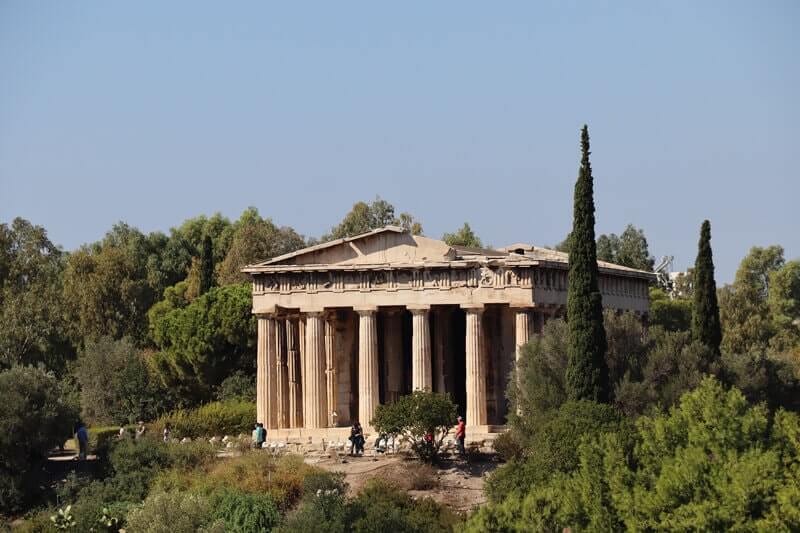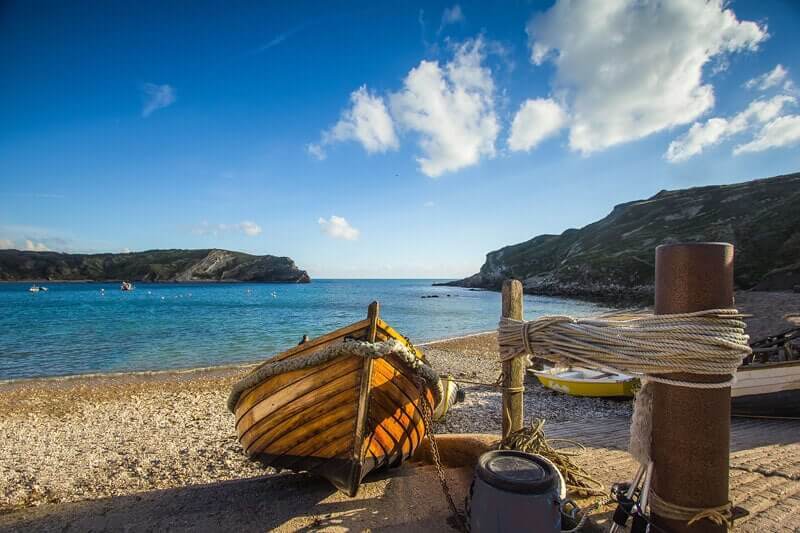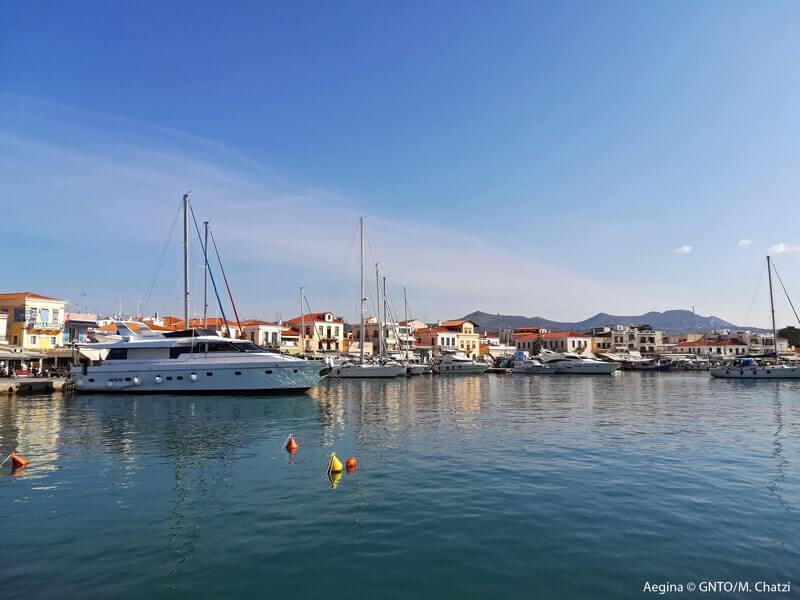Lately, I’ve been thinking about what was going on in Athens around 622 0r 621 BC. Specifically about a chap named Draco. And that familiar warning about being careful what you wish for.
The Athenians wished to sort out their laws which were in a right old mess, mainly because they weren’t written down. “We should get somebody to sort out this right old mess,” they decided. “Draco’s the man for the job. He’s a legislator and, what’s more important, he knows how to write.”
So Draco got to work and wrote down all the laws, standardising them and, more important, the various punishments imposed on folk who broke them – which is where the bit about being careful what you wish for comes in.
According to Draco, people who got into debt could be sentenced to a lifetime of slavery. He also introduced the death penalty for scores of offences, many of them minor. Death for stealing a cabbage? You’d better believe it.
 The Athenians were not best pleased. “These punishments are way over the top,” they moaned. “These punishments are positively …” They didn’t have a word to describe it. So they invented one. “Draco-nian.”
The Athenians were not best pleased. “These punishments are way over the top,” they moaned. “These punishments are positively …” They didn’t have a word to describe it. So they invented one. “Draco-nian.”
Newspaper columnists and the Twitterati are spraying “Draconian” around with gay abandon at the moment. They’re commenting about the prospect of hefty punishments for people who try to go abroad on holiday. “£5,000 fine for going to the airport” was one headline I spotted in a more-than-usually-hysterical tabloid.
Boris Johnson is no Draco. However, he and his governing chums have little choice but to threaten massive penalties as they try to manage our exit from lockdown. Like all politicians, they have to legislate against stupidity – or try to.
With Covid-19, and especially its nastier, newer variants, still rattling around the world, it would be complete madness to travel abroad. Level-headed travellers, most of whom are to be found in the Silver section of society, are well aware of this. No matter how much we long to get back to old haunts, familiar hotels, much-loved tavernas and bistros and beach bars, and enjoy all the wonderful ingredients of a holiday abroad, we know we have to be patient.
“Nobody is safe until everyone is safe,” remember?
But a lunatic fringe – the toilet roll hoarders and weekend ravers – do not respond to common sense, so have to be threatened with stiff punishments. Which is good for the writers of hysterical headlines, as well as reminding us who Draco was.
 So we’ll have to settle for a holiday within the UK for a while – maybe for the rest of the year – but maybe not, if our progress towards “herd immunity” is successful. Nobody knows, so there’s not much point in speculating.
So we’ll have to settle for a holiday within the UK for a while – maybe for the rest of the year – but maybe not, if our progress towards “herd immunity” is successful. Nobody knows, so there’s not much point in speculating.
If we cannot go abroad, there are plenty of wonderful places to visit around our coastline and countryside. Masses of super hotels, self-catering cottages, historic cities, stately homes, country parks and what have you. You probably already know about many of them from reading this website. Finding the best and telling you about them is what we do.
And one very new and interesting option is going to be available.
Dame Irene Hays was on TV the other day, talking about how passenger ships are going to be sailing around our shores later this year, offering folk the opportunity to embark for different lengths of time in order to enjoy the “full cruise experience”.
It makes perfect sense. These ships have nowhere else to go, and have been parked offshore since the pandemic struck. They might as well be used for something useful, and flexible cruising would seem to be it.
However, if the operators aren’t careful, these trips could be like the old “Cruises to Nowhere” deals you used to be able to get out of Miami Beach and Port Lauderdale. In essence, they were long weekends (“Lost Weekends”, too), tremendously popular with younger folk who wanted to eat, drink, and party – but mainly drink – all the way out to nowhere and all the way back again.
That sort of thing is nowadays frowned upon, so I rather hope this fleet will turn out to be more like a maritime Circle Line, but with nicer scenery. And, arguably, nicer passengers.
I am as keen as anyone to travel abroad again. I hope to do so, albeit modestly, before the end of the year. But, like you, I have sense enough to know that getting back to something approaching normal is going to take some time and will only happen when our chosen holiday destinations have managed to control Covid-19 as effectively as we seem to be doing here.
P.S. Here’s a little something extra which came to mind when I was writing about the round-Britain-cruise concept. A story told by Ted and Elizabeth, a couple from Liverpool whom we met on a Mediterranean cruise several years ago.
They had, a few weeks before, enjoyed a round-Britain trip on Cunard’s Queen Elizabeth 2, having embarked at Southampton.
Sailing clockwise around the coast, the QE2 arrived at Liverpool, after a couple of intermediate stops. So the couple disembarked, took a bus from the port and another from the city centre to their home. They dealt with the post, watered the plants and, that afternoon, Elizabeth went to her local hairdresser for what she called her “regular sort-out”.
That evening, back on board, her new hairstyle drew favourable comments. “I’m glad it worked out as it did,” she told us. “There was no way I was going to pay the prices the ship’s hairdressing salon charged. And, as it was a Wednesday, I got my OAP discount as well.”
 P.P.S. Another extra (oh, I do spoil you!). It concerns Draco. According to one story the Athenians were so hacked off with what he had done that they “honoured” him in a traditional way – by throwing clothes at him. (I have absolutely no idea how that custom originated, so don’t ask.) But they threw so many cloaks and shirts and so forth that he was suffocated.
P.P.S. Another extra (oh, I do spoil you!). It concerns Draco. According to one story the Athenians were so hacked off with what he had done that they “honoured” him in a traditional way – by throwing clothes at him. (I have absolutely no idea how that custom originated, so don’t ask.) But they threw so many cloaks and shirts and so forth that he was suffocated.
No, I don’t believe it, either. I think he simply got out of town and lived the rest of his life on the nearby island of Aegina. The Athenians took nearly 200 years to water down his punishments, so they can’t have been all that annoyed. And the “Draconian” laws weren’t completely repealed until the 6th century BC.











